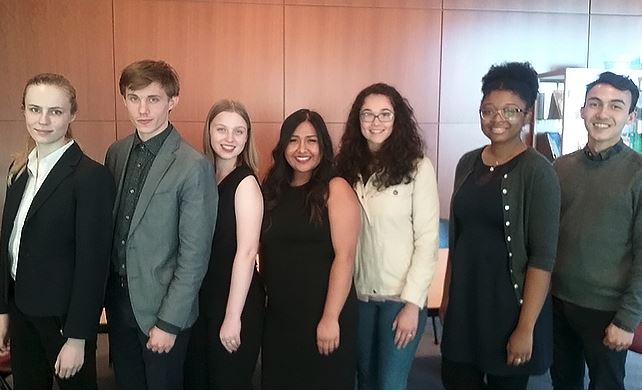 A study by researchers working with the Transfer Project, a partnership of the University of North Carolina at Chapel Hill Carolina Population Center, UNICEF and the Food and Agriculture Organization of the United Nations, concludes that small unconditional cash grants for families with children under five years old make it possible for impoverished rural families in Zambia to improve consumption, food security, savings and productive activity. However, the study also shows that these grants cannot solve all problems associated with extreme poverty for families in developing countries.
A study by researchers working with the Transfer Project, a partnership of the University of North Carolina at Chapel Hill Carolina Population Center, UNICEF and the Food and Agriculture Organization of the United Nations, concludes that small unconditional cash grants for families with children under five years old make it possible for impoverished rural families in Zambia to improve consumption, food security, savings and productive activity. However, the study also shows that these grants cannot solve all problems associated with extreme poverty for families in developing countries.

Sudhanshu Handa, professor of public policy at UNC and chief of the Social and Economic Policy Section for the UNICEF Office of Research based in Florence, Italy, and collaborators recently published an article in the Journal of Policy Analysis and Management which appeared online on Dec. 31, 2015. Co-authors include David Seidenfeld, senior director of the American Institutes for Research; Benjamin Davis, senior economist with the Food and Agriculture Association of the United Nations; Gelson Tembo, senior lecturer with the Department of Agricultural Economics at the University of Zambia; and a Zambian research team.
The Zambian Government’s Child Grant program provided each family with the equivalent of $11 USD per month – enough to buy one meal per day for each family member for the month. The researchers report that families used the cash to buy more food, build up their financial savings and reduce debt, invest in creating businesses, and buy necessities such as clothing and shelter materials. But other factors assessed by the team, including child nutritional status and schooling, were not significantly impacted by the grant. Instead, these factors seemed linked to the original condition of the household, reported the researchers. They conclude that while cash grants do have significant positive effects on very poor families, cash alone is not enough to solve all the problems facing poor rural families.
The Transfer Project assesses the impact of existing government social transfer programs on children and their families’ well-being in Sub-Saharan Africa. The goal of the project is to gather evidence on such programs so that they can be better designed and implemented to further reduce childhood poverty and promote equitable growth.
The publication is available online at http://onlinelibrary.wiley.com/doi/10.1002/pam.21892/abstract.
Story by UNC Global.




